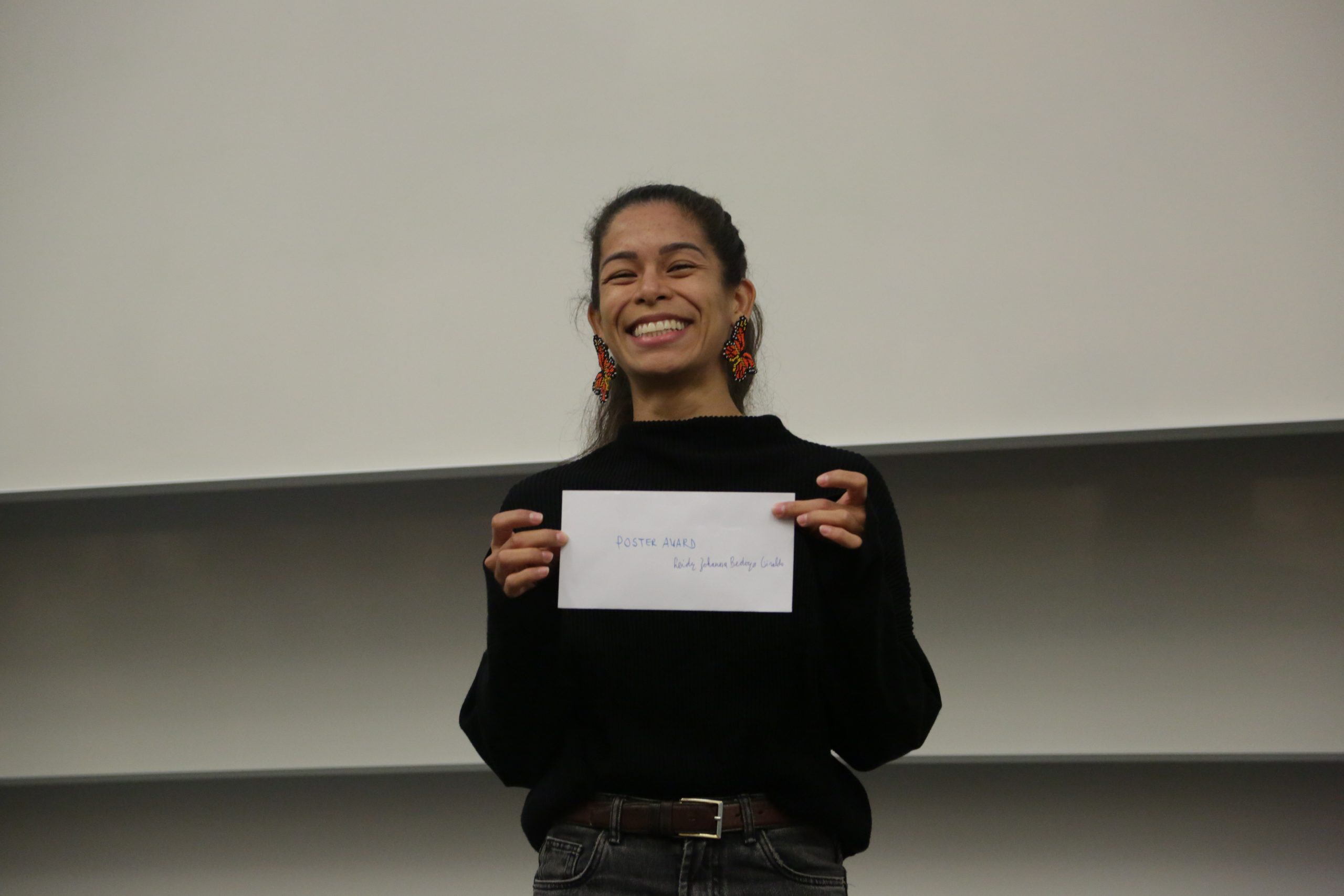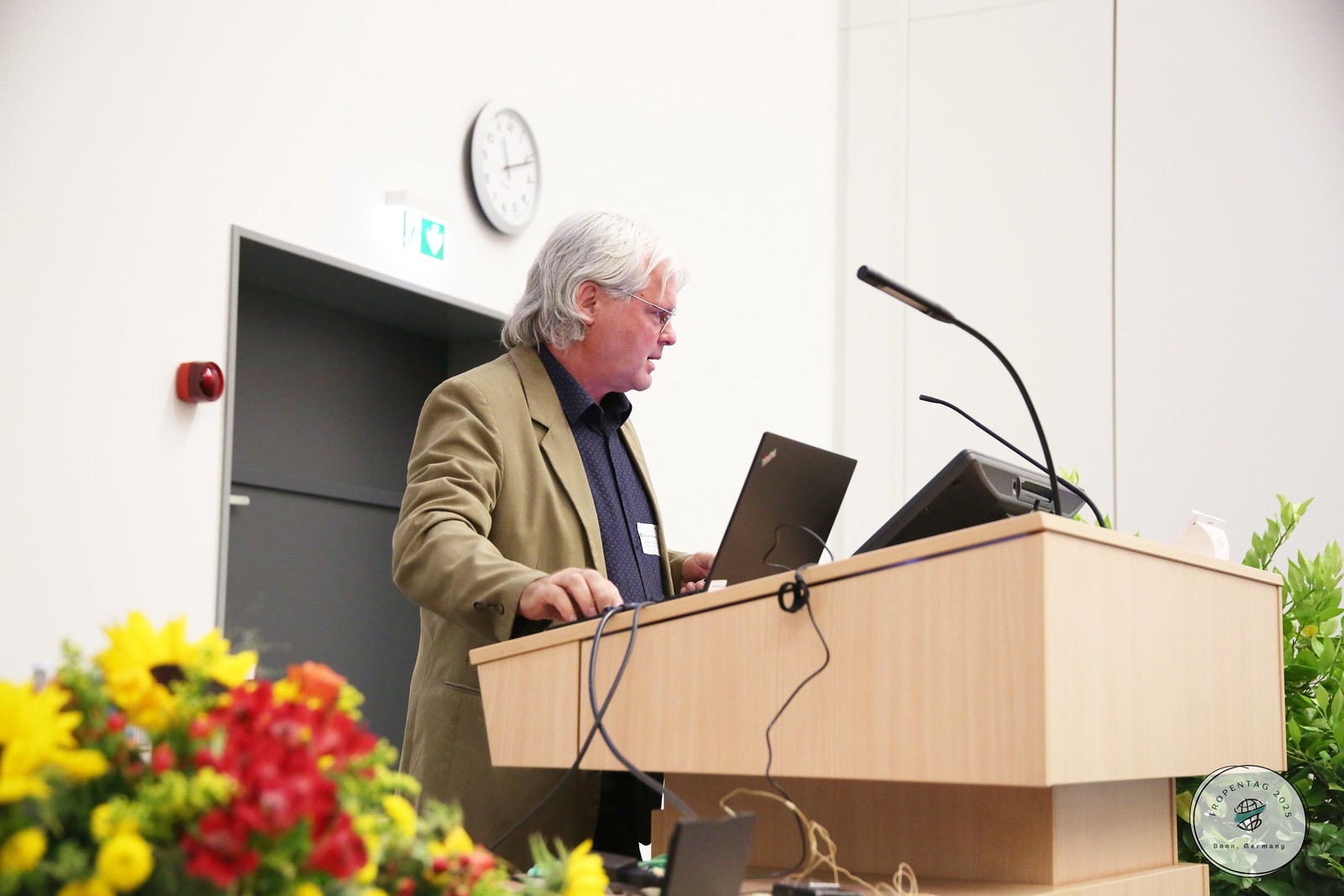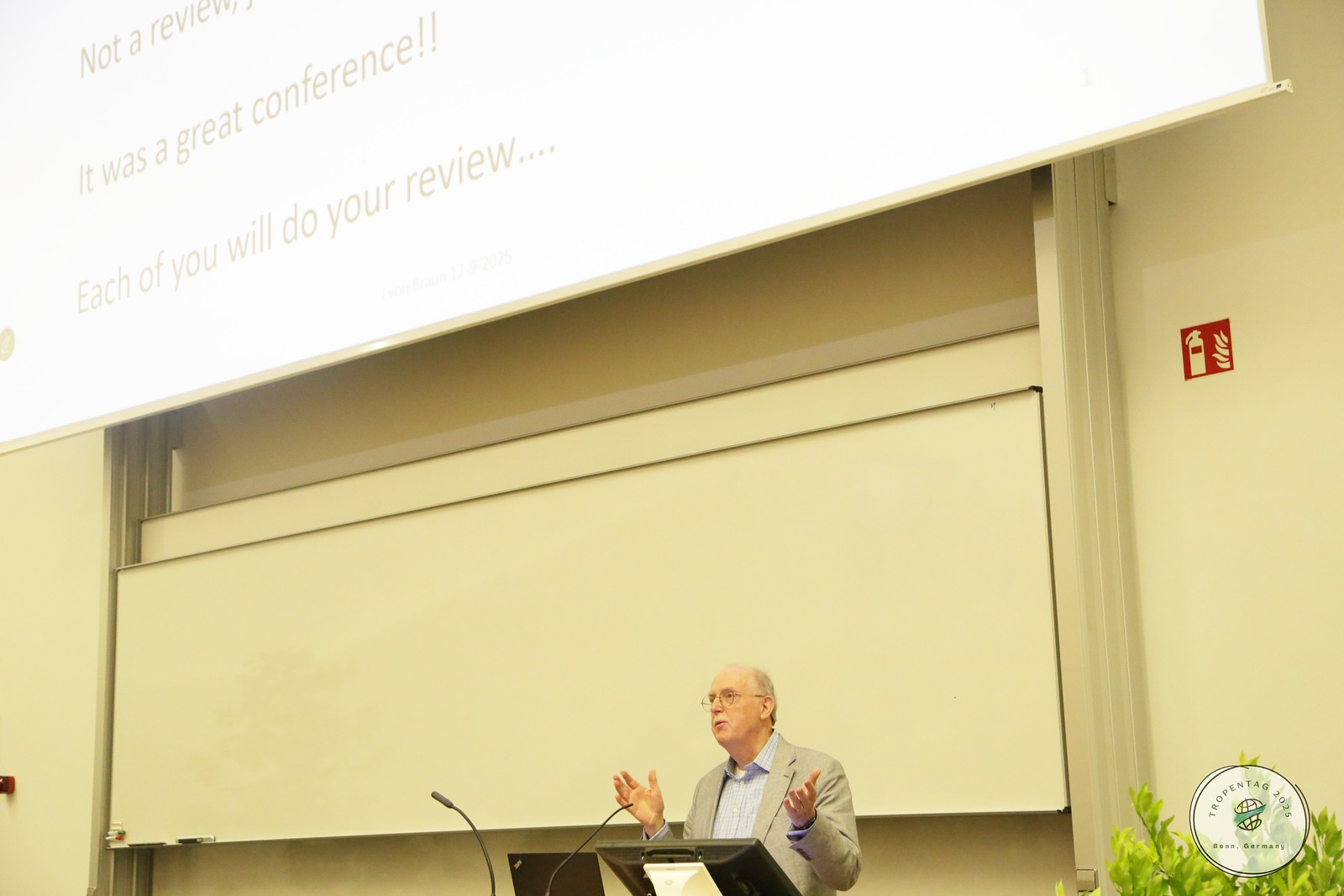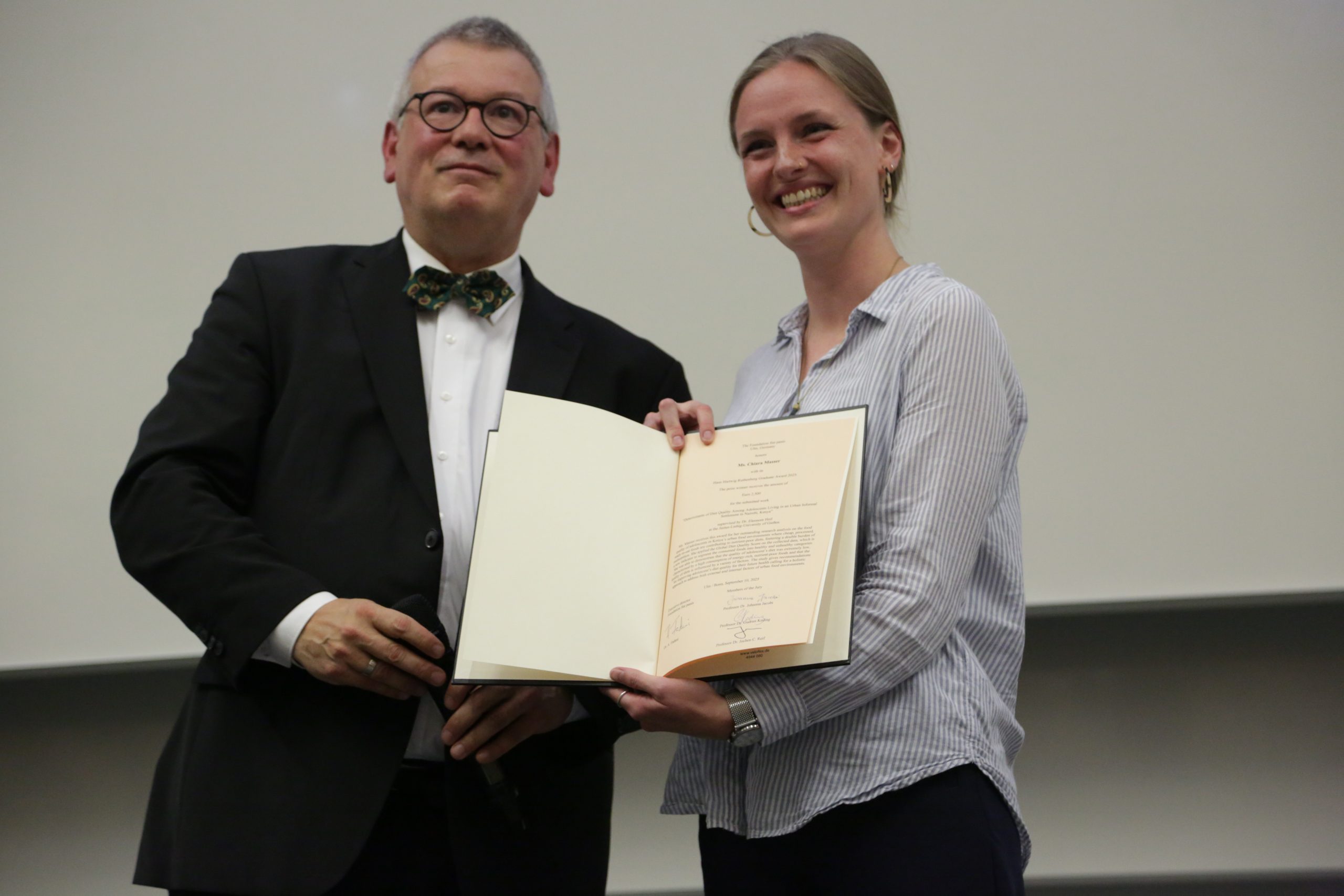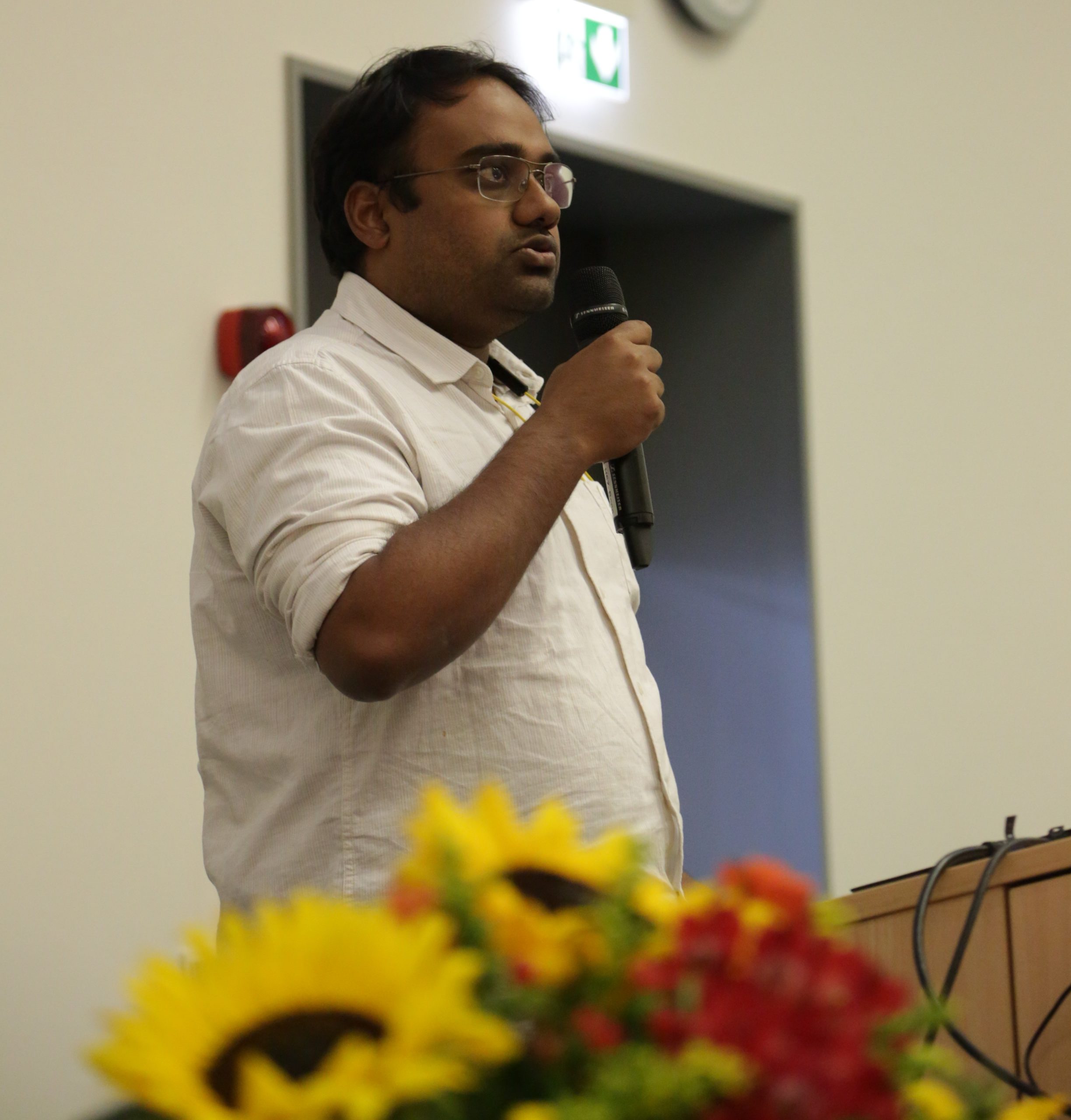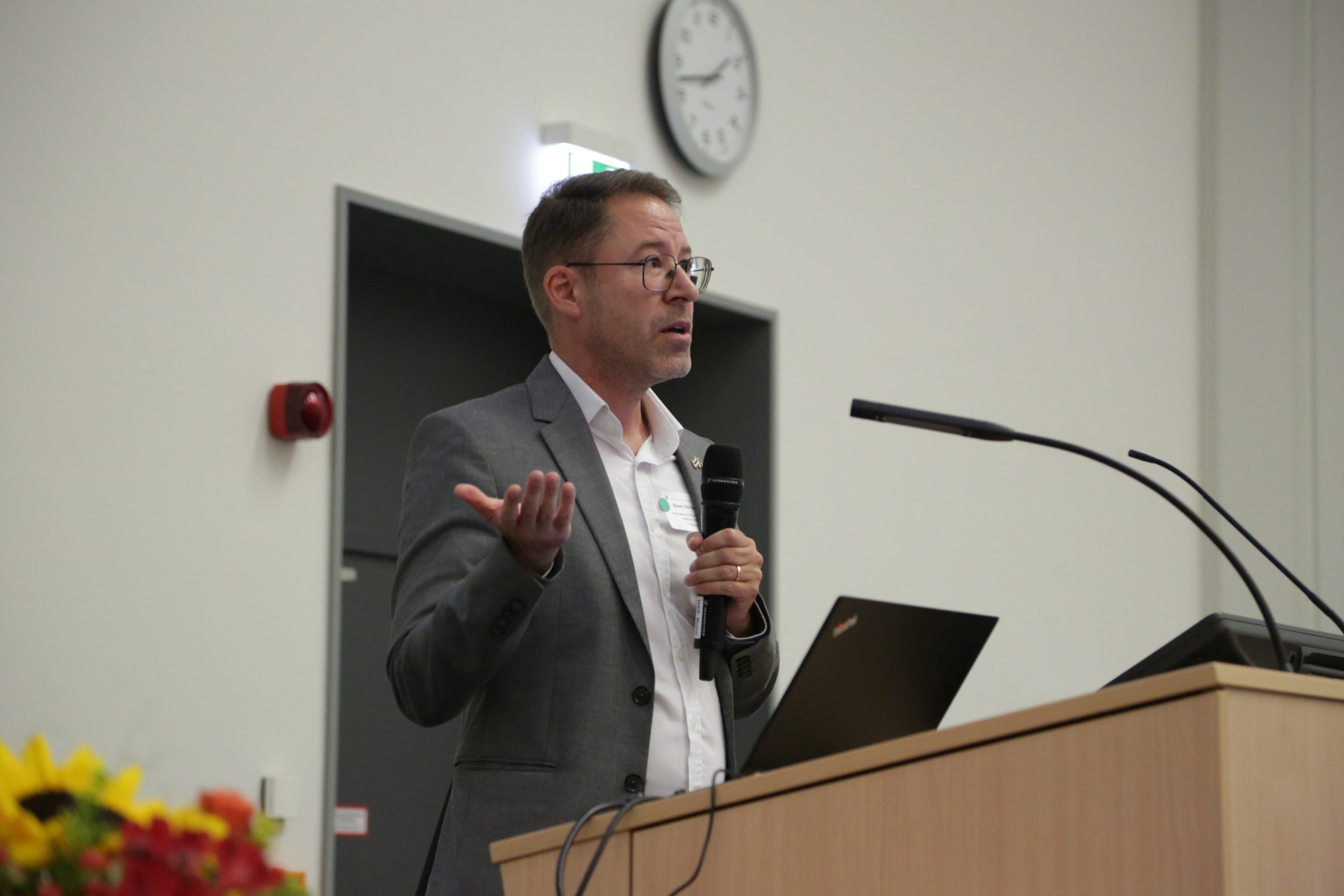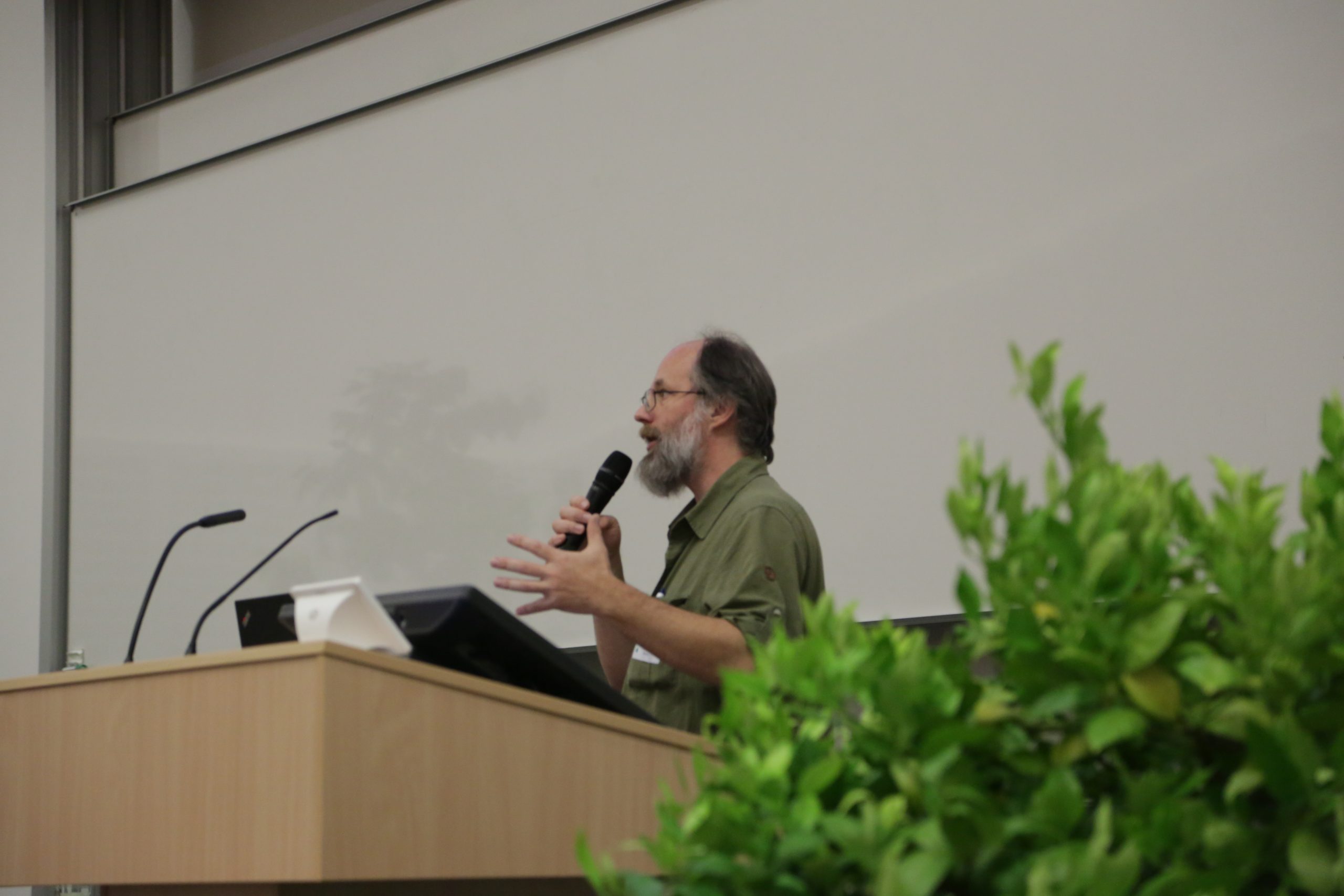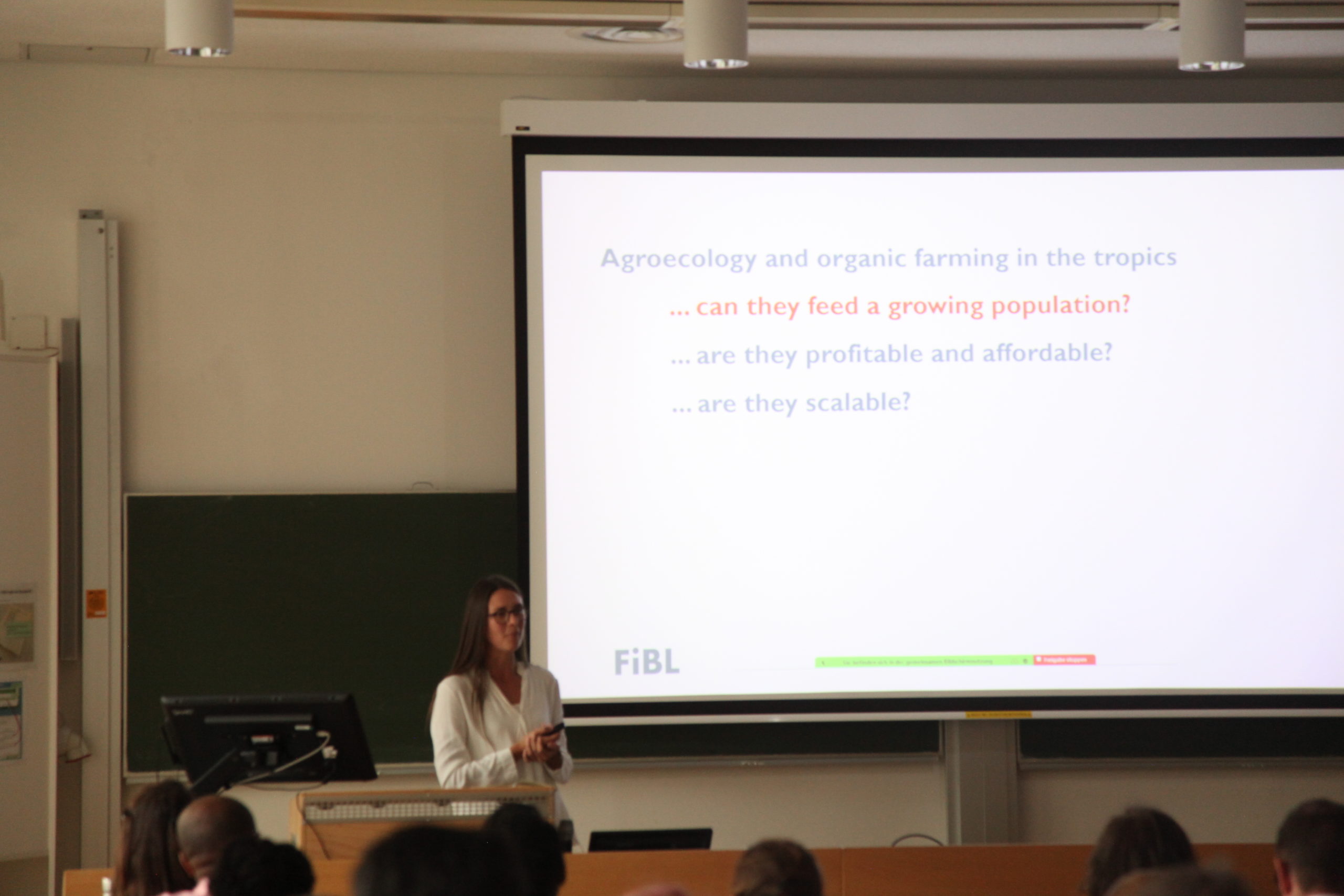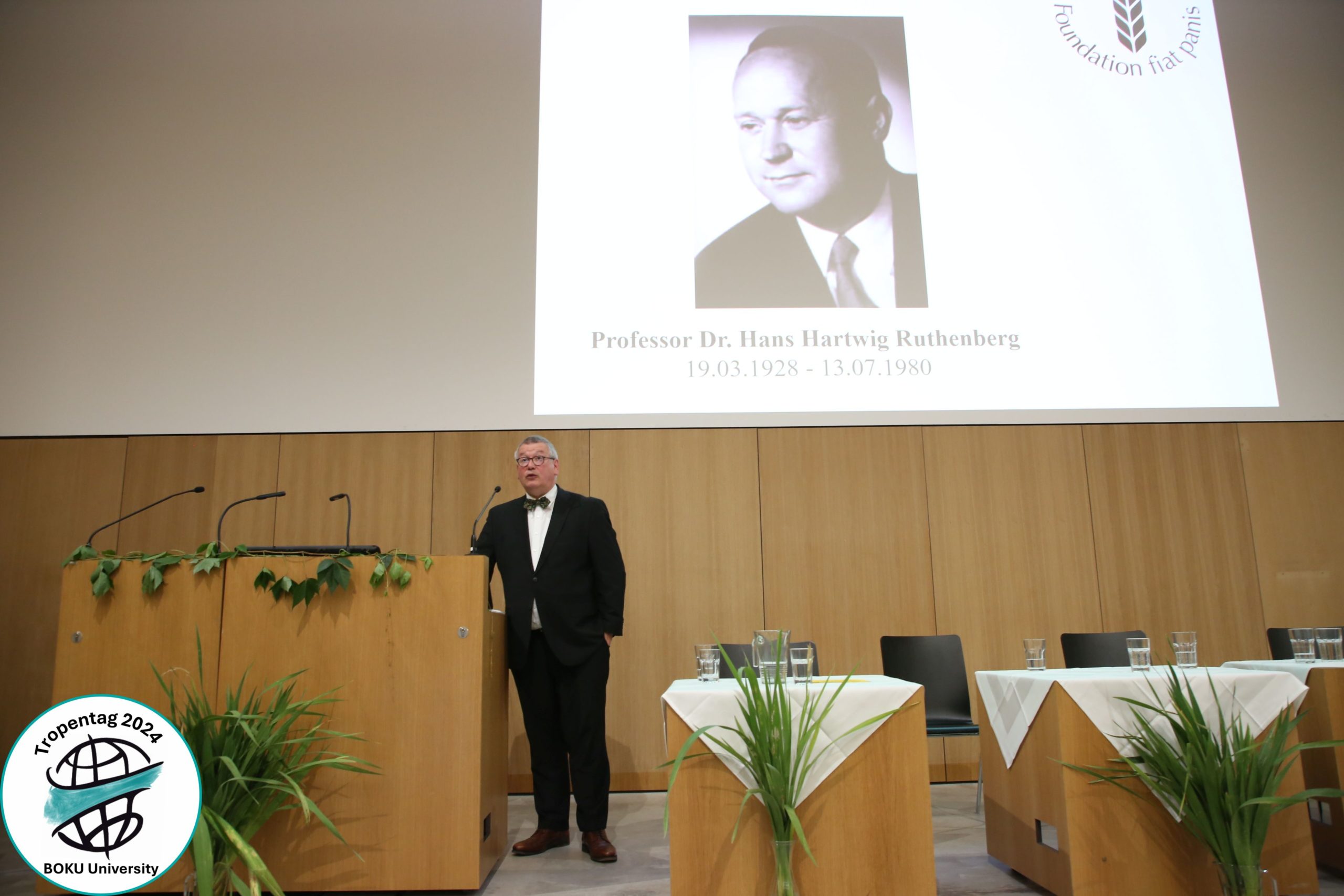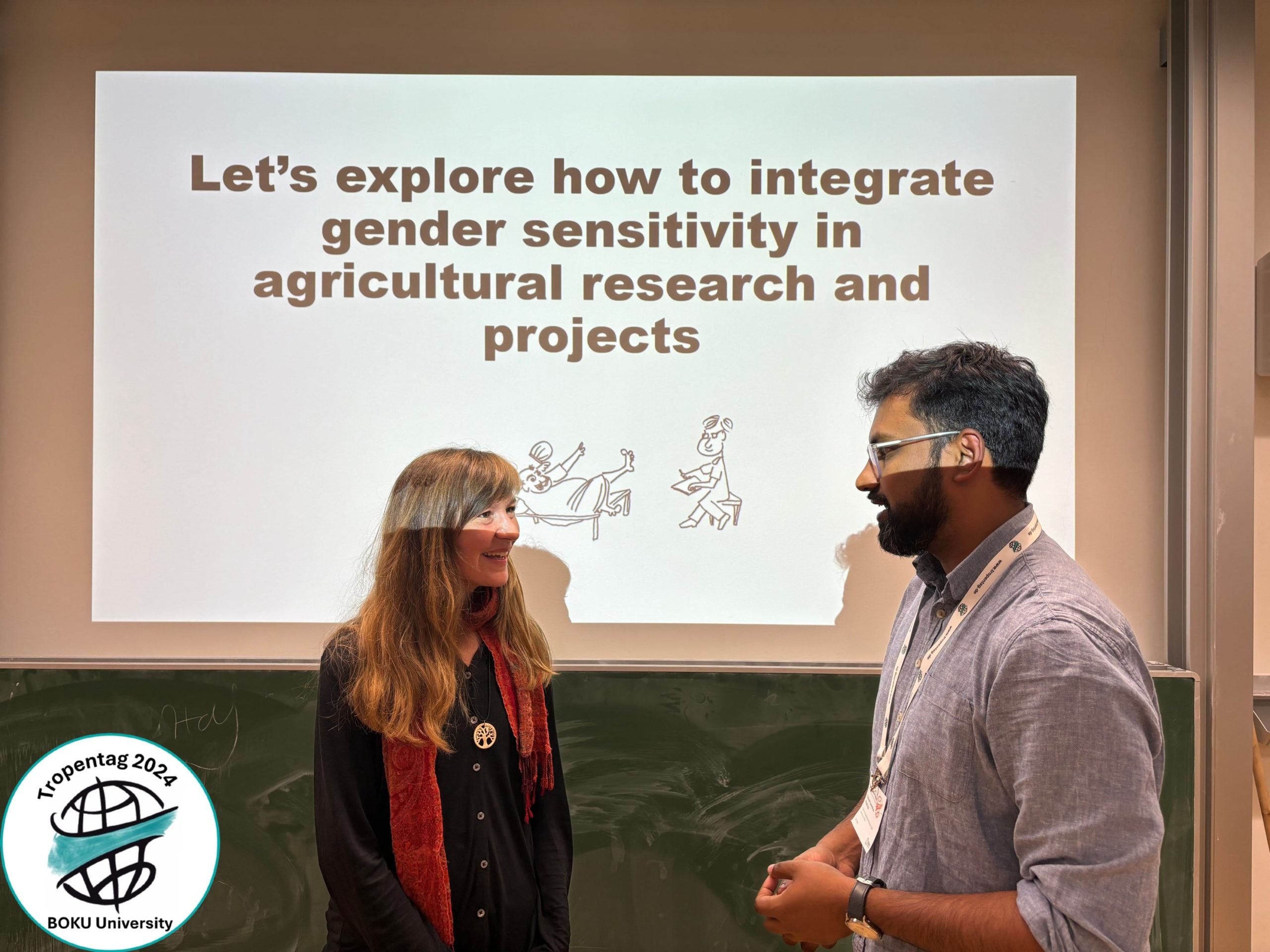How local knowledge and adaptive practices are redefining conservation and livelihoods in one of the world’s most vital ecosystems. In the vibrant bustle of Tropentag 2025, one poster quietly pulled visitors in. Its muted greens
In conference halls, paradigms compete. In the fields, farmers blend whatever works.
The hard questions for agriculture are inseparable from the hard questions facing society.
In Nairobi’s informal settlements, teenagers know healthy eating matters—but poverty and limited food choices keep balanced diets out of reach. At Tropentag 2025, Chiara Masser from Justus Liebig University Giessen presented striking new evidence on
Cleaner skies are on the horizon, but unless we prepare, they could also bring tougher times for farmers.
If rice is on half the world’s plates, its future should concern us all
Land must be understood…
Due to lower quantities per hectare compared to conventional methods, organic agriculture is seen as an unrealistic strategy to feed the world. The yield gap is what separates the two, currently positioning us at the shoreside of intensified, conventional farming. But is this yield difference as conclusive as it seems?
Two very different success stories, one conclusion: going to the people and connecting with the local producers is what makes research come alive.
In an increasingly interconnected world, understanding and addressing gender sensitivity in our work is not just a trend—it’s a necessity. In the workshop on how to integrate gender sensitivity in agricultural research and projects, PhD researchers Lilian Beck from the University Hohenheim and Subash Surendran Padmaja from the University of Bonn discuss gendered power dynamics that extend far beyond simple patriarchal frameworks.

